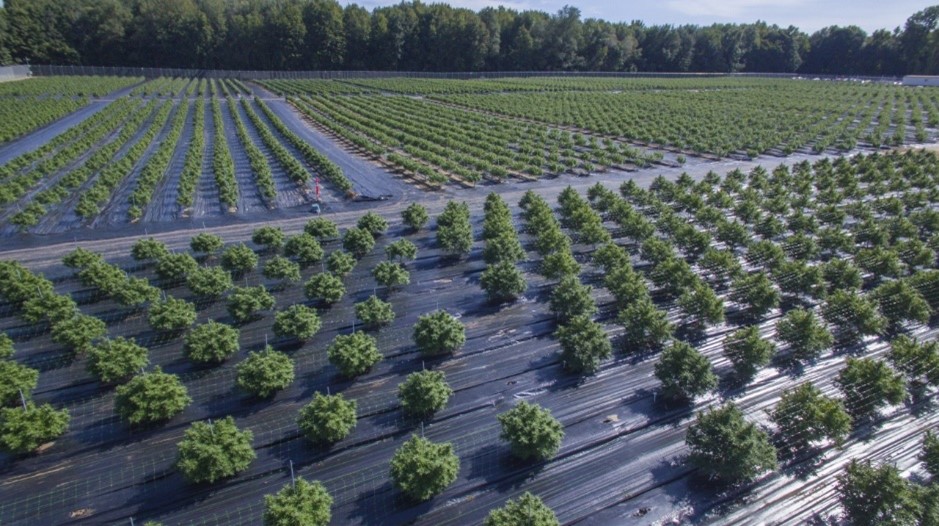 Share
Share
 Tweet
Tweet
 Share
Share
 Share
Share
 Introduction
Introduction
The cannabis industry has seen significant growth in recent years, and with increasing legalization and acceptance of cannabis products, the future of the industry is looking bright. In this article, we'll look at some of the latest predictions and trends in the world of cannabis, from innovations in technology and product development to changing consumer preferences and evolving regulations.
Product Development
One of the biggest trends in the cannabis industry is the development of new and innovative products. With the legalization of cannabis for medical and recreational use, companies are constantly looking for ways to create products that appeal to a wide range of consumers. From edibles and drinks to topicals and concentrates, the variety of cannabis products available continues to grow. Here are some examples of new cannabis products and delivery methods that companies are developing:
- Cannabis-Infused Beverages: One of the latest trends in the cannabis industry is the development of cannabis-infused beverages. Companies like Canopy Growth, Molson Coors, and Heineken have all entered the market with cannabis-infused drinks, which are designed to offer a low-dose and discreet way of consuming cannabis. These beverages come in a variety of flavors and formats, such as malt beverages, sparkling waters, teas, and sports drinks.
- Transdermal Patches: Transdermal patches are another innovative product that has been introduced to the cannabis market. These patches deliver a controlled dose of cannabis through the skin, which provides a longer lasting and more consistent effect than smoking or vaping. Companies like Mary's Medicinals and others are developing transdermal patches that contain both THC and CBD, which can be used for pain relief, anxiety, and other conditions.
- Inhalers: Inhalers are a new delivery method for cannabis that is gaining popularity among medical users. These devices deliver a precise and consistent dose of cannabis in an aerosol form, which can be easily inhaled through the mouth. Companies like Vapen and Aeroinhaler are developing inhalers that contain both THC and CBD, which can be used to treat conditions like asthma, chronic pain, and anxiety.
- Nano emulsions: Nano emulsions are a new technology that companies are using to enhance the bioavailability of their cannabis products. These nano emulsions are tiny droplets of oil that are emulsified in water, which allows for faster and more efficient absorption in the body. Companies like Nanosphere Health Sciences and Lexaria Bioscience are using nano emulsions to create more effective cannabis-infused products, such as edibles, beverages, and topicals.
Technology:
Another key trend in the cannabis industry is the use of technology. From seed-to-sale tracking systems to automated growing systems, technology is playing an increasingly important role in the cannabis industry. Companies are also investing in research and development to create new and innovative technologies that will help improve the quality and efficiency of their products. The cannabis industry is increasingly relying on technology to optimize growing conditions, improve supply chain transparency, and ensure regulatory compliance and safety. Here are some examples:
- Artificial Intelligence (AI) for Optimizing Growing Conditions: Companies in the cannabis industry are using AI to improve the efficiency and quality of their growing operations. AI systems can monitor environmental conditions such as temperature, humidity, and light levels, and adjust them in real-time to optimize plant growth. By using AI, growers can maximize their yields, reduce waste, and improve the quality of their products. Check out this article in Cannabis Tech.
- Blockchain Technology for Supply Chain Transparency: Blockchain technology is being used in the cannabis industry to improve transparency and traceability in the supply chain. By using a blockchain-based system, companies can track every step of the process, from seed to sale. This technology can ensure that products are not contaminated or tampered with and can also help prevent the sale of counterfeit products. This increased transparency and traceability can give consumers greater confidence in the safety and quality of the products they purchase. Check out this article in Cannabis Tech.
- Technology for Regulatory Compliance and Safety: The cannabis industry is subject to a wide range of regulations and safety requirements, and companies are turning to technology to help them comply with these rules. For example, some companies are using software platforms to track inventory, monitor product quality, and ensure compliance with labeling and testing requirements. Other companies are using automated systems to test their products for contaminants, such as pesticides and heavy metals. Check out this article in Cannabis Industry Journal.
Consumer Trends:
Consumer preferences are also changing in the world of cannabis. As the industry grows, consumers are becoming more knowledgeable about different strains and products, and they're looking for products that meet their specific needs and preferences. Companies are responding by offering a wider range of products, from high-THC strains for recreational users to low-THC products for medical patients.
Consumers in the cannabis industry are becoming increasingly interested in products that offer health benefits and are sustainably sourced and packaged. Companies are responding to these trends by offering a wider range of products and using data analytics to better understand their customers.
- High-CBD Products for Health Benefits: CBD, or cannabidiol, is a non-psychoactive, non-intoxicating compound found in cannabis that has been associated with a range of potential health benefits. CBD has been studied for its potential to reduce anxiety, relieve pain, and improve sleep, among other benefits. As a result, consumers are increasingly interested in high-CBD products, such as oils, tinctures, and capsules. Some companies are also developing products that combine CBD with other natural ingredients, such as herbs and essential oils, to offer even greater health benefits.
- Sustainably Sourced and Packaged Products: As consumers become more environmentally conscious, there is growing demand for cannabis products that are sustainably sourced and packaged. Some companies are using sustainable growing methods, such as organic and regenerative agriculture, to reduce their impact on the environment. Others are using eco-friendly packaging materials, such as biodegradable plastics and recycled paper, to reduce waste. These efforts can help companies appeal to environmentally conscious consumers and differentiate themselves in a crowded market.
- Data Analytics for Customer Insights: Companies in the cannabis industry are using data analytics to better understand their customers and tailor their products to meet their needs. By analyzing data on customer preferences, purchasing behavior, and demographics, companies can develop targeted marketing campaigns and product offerings. They can also identify emerging trends and adjust their strategies accordingly. Data analytics can help companies stay competitive and meet the evolving needs of their customers.
15 Data Analysis Resources for Industry-Specific Insight
Regulations:
The legalization of cannabis is happening at a state-by-state level, and regulations continue to evolve. As more states legalize cannabis for medical and recreational use, companies are facing new challenges and opportunities. The industry is also facing challenges from federal regulators, who have yet to fully embrace the legal cannabis industry.
Regulations in the cannabis industry vary greatly from state to state, which poses unique challenges for businesses operating in different regions. For example, some states may only allow medical cannabis, while others permit both medical and recreational use. Additionally, states have different licensing requirements for cannabis businesses, such as cultivation, processing, and dispensary operations.
For instance, in California, cannabis businesses must comply with strict regulations regarding packaging and labeling requirements for products. Any product that contains more than 100 milligrams of THC must be divided into individual serving sizes and be clearly labeled with the total amount of THC, CBD, and other active ingredients. On the other hand, in Colorado, there are no specific packaging and labeling requirements for cannabis products, but businesses must follow strict guidelines for testing and reporting on the content of their products.
Federal regulations are slowly changing. In 2023, the Secure and Fair Enforcement (SAFE) Banking Act was reintroduced in the House and Senate. This allows banks to work with licensed, state-legal cannabis businesses in states where cannabis is legal without fear of federal prosecution. The latest version of the Act also provides explicit protections for Minority Depository Institutions and Community Development Financial Institutions that want to support cannabis businesses and makes it easier for people working in the cannabis industry to obtain mortgage loans. This is a significant step forward for the industry, as it allows cannabis businesses to access traditional banking services, such as loans and credit card processing.
Regulations play a critical role in shaping the cannabis industry. As regulations continue to evolve, businesses must remain up-to-date and comply with new requirements to stay in operation. Moreover, regulations also have an impact on product development, affecting everything from packaging and labeling requirements to the composition and potency of cannabis products.
What Next?
Join our LinkedIn group at https://www.linkedin.com/showcase/cannabis-marketing-certification/ to connect with other professionals in the cannabis industry and stay up-to-date on the latest marketing strategies and trends.
Whether you work in retail dispensaries or cannabis manufacturing sales and marketing, the Western Michigan University Cannabis Marketing Certification (CMC), will help you learn the basics of cannabis marketing and retailing, along with key strategies for product development, branding, and compliance.
Our online platform allows for flexible learning, so you can fit the coursework around your busy schedule. This course and certification is designed to equip you or your teams with the necessary onboarding tools to succeed.
Upon completion, you'll earn a certification from a respected university, giving you a competitive edge in the industry. Don't miss out on this opportunity to advance your career in the exciting world of cannabis. Enroll now at: https://tinyurl.com/WMUCMC420
Summary
The cannabis industry is rapidly evolving, and it's an exciting time to be a part of it. From new products and technologies to changing consumer trends and evolving regulations, the future of the cannabis industry is full of potential. As the industry continues to grow and mature, it's important to stay informed and up to date on the latest developments and trends.
Disclaimer: This article is for informational purposes only and does not constitute legal advice. Please consult with your own legal counsel regarding the legality of cannabis in your jurisdiction.





